Driving with a faulty AC can turn even the shortest ride into an ordeal, especially when the temperatures rise. A bad compressor is one of the most common culprits behind poor AC performance. It plays a crucial role in your car’s cooling system, and when it fails, the warning signs are usually clear.
Learning how to tell if a car’s AC compressor is bad can help you spot issues early and prevent more serious repairs. In this article, we’ll show you exactly what to look for.
Table of Contents
What is the lifespan of a car AC compressor?
What causes a car AC compressor to fail?
5 Signs your AC compressor is bad
Conclusion
What is the lifespan of a car AC compressor?
On average, AC compressors can last 8-12 years, which is about when most people own their vehicles. This is especially true for standard cars that receive regular service and proper care. Electric car AC compressors tend to last longer due to more efficient systems and fewer moving parts..
However, if a person doesn’t maintain it, some may show symptoms of car AC compressor failureearlier than expected.
What causes a car AC compressor to fail?
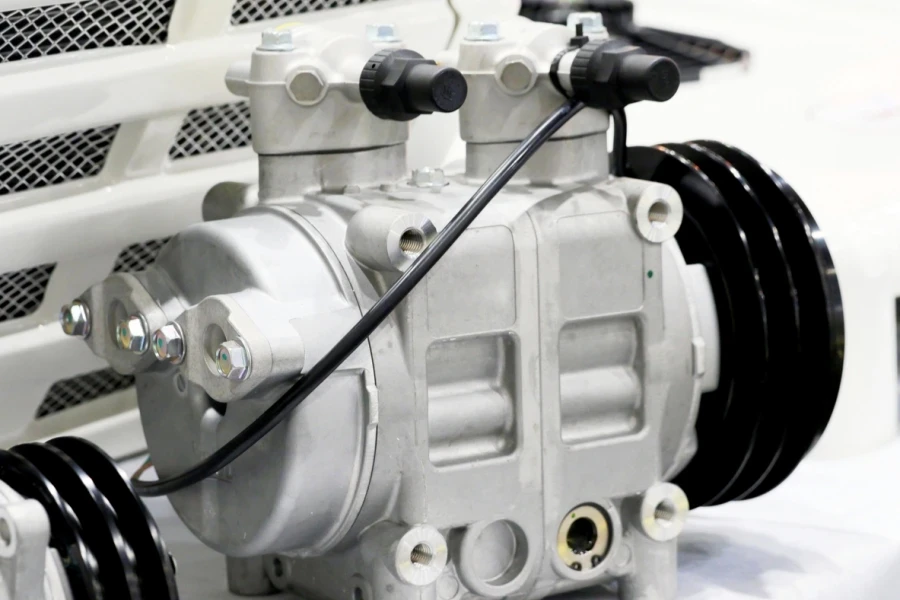
There are different reasons a car’s AC Compressor stops working. It could be seasonal driving conditions or even a lack of maintenance. Let’s look at the common reasons that lead to an AC compressor failure:
Incorrect or low refrigerant
Now, here’s what most car owners miss. If the refrigerant in your car’s air conditioning system is running low, the thermal is loading up fast and may cause a compressor failure. That’s why it’s key to always run a maintenance check every now and then. No one wants unexpected expenses.
Improper lubrication
Like other vehicle parts, a compressor needs sufficient lubrication. Insufficient lubrication strains the air conditioning system, causing the AC compressor to fail.
Clogs
The presence of clogs in any part of the filters, condensers, or valves causes pressure loss, which leads to the AC compressor’s failure. The lack of enough airflow in the car’s vents causes overheating in the AC compressor.
Tripping circuit breaker
A circuit breaker that keeps tripping may cause the AC compressor to fail. Too much power is drawn from the AC system, indicating faultiness. This may mean replacement or the need to fix the compressor soon.
5 Signs your AC compressor is bad
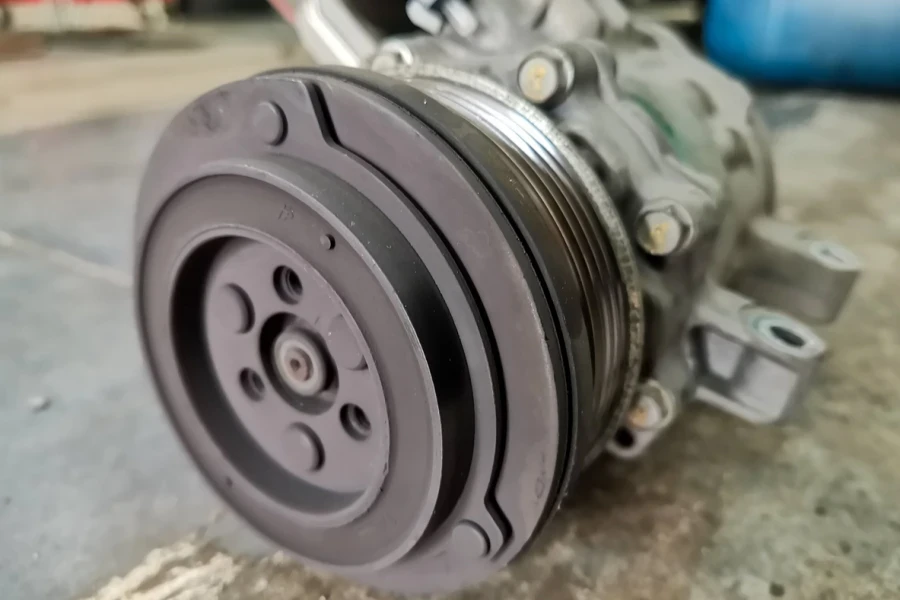
1. Noises coming from the engine compartment
If the car AC compressor makes a chattering, squealing, whining, or rattling sound during an inspection, it’s time to take the AC in for service. A seizing shaft or a faulty compressor clutch can cause these noises.
However, a failure might happen when the compressor oil used for lubrication contains water vapor, is of the wrong type, or if the supply needs to be increased.
2. The air conditioner is not as cold as it should be
Another sign of a bad car AC compressor is when the air is no longer cold, even when the AC is on. In some cases, you may feel warm air instead. This is one of the common symptoms of a bad car AC compressor, though other issues can also cause it.
3. Evident damage on the AC compressor clutch
When the compressor clutch or the unit is physically damaged, it could mean a problem inside the car’s AC compressor.
For instance, corrosion caused by moisture is a common sign of trouble.
4. The compressor clutch will not engage

When looking at the compressor face, the compressor clutch looks like a plate on the pulley front. The clutch should engage any time you switch on the air conditioner.
When the AC is off, the clutch shouldn’t spin. But when it’s on, you may hear a click and see it spin with the pulley and belt.
If the clutch doesn’t engage or makes a whining noise, it could be a sign of a bad car AC compressor that needs service or replacement.
5. Connection concerns
Apart from the AC compressor giving signs of faultiness, there are also other problems to look out for on the AC system that connects to the AC compressor:
Refrigerant loss
Refrigerant loss is one of the most common problems in a car’s AC system. It usually happens when seals wear out or hoses leak.
When the refrigerant level drops too low, the system can’t cool the air properly, and you’ll feel warm air instead of cold.
A low-pressure switch often shuts off the AC compressor to prevent it from running without enough refrigerant, which could damage it.
Refrigerant blockage
Though not as common, a refrigerant blockage can happen if a hose or line is pinched or damaged. It may also be caused by a clogged orifice tube or a faulty expansion valve.
This can affect pressure inside the system and lead to car AC compressor failure over time.
Broken serpentine belt
If the serpentine belt that powers the AC compressor is cracked, worn, or broken, the compressor may not spin correctly or stop working altogether.
Some cars use a shared belt for other parts, like the alternator and power steering, so your AC may also be affected if the belt breaks.
Clogged cabin air filter
The cabin air filter helps clean the air before it enters your car. Airflow through the vents drops when the air is full of dirt or debris.
This can make the AC feel weak and strain the car’s AC compressor, especially during hot weather.
Faulty blower motor
Insufficient air gets pushed through the system if the blower motor fails.
This can make it seem like the AC compressor is failing when the real problem is the fan not moving air over the cooling coils.
Blown fuse
Sometimes, a blown fuse is all it takes to stop the AC from working.
Replacing the fuse might fix the issue, but a deeper problem could affect the compressor or other parts of the electrical system if it blows again.
Conclusion
Spotting problems with your car’s AC compressor early can save you from costly repairs and keep your AC system running as it should. The signs in this guide are a helpful starting point for knowing what to look for.
If you notice any of these issues, don’t wait; have your car checked by a trusted mechanic.
And if you need a replacement part, you can find quality AC compressors in bulk on Chovm.com.
FAQS
Turn on the AC and watch the compressor. If the clutch clicks and starts spinning, it’s working. If it doesn’t move or if the air isn’t cold, the compressor might not be working properly. A mechanic can test it more thoroughly.
Turn on the AC and watch the compressor. If the clutch clicks and starts spinning, it’s working. If it doesn’t move or if the air isn’t cold, the compressor might not be working properly. A mechanic can test it more thoroughly.
Yes, the car will still run, but the AC won’t cool properly. If the compressor is damaged badly enough, it could affect other parts, especially if they share the same belt.
This test is usually done by a mechanic. They take the compressor out and check it using power tools to see if the clutch works and if it spins as it should.
Look for obvious signs like noise, leaks, or poor cooling. If the clutch doesn’t engage or there’s a strange sound, those are clues. A mechanic may be needed to make a proper diagnosis.
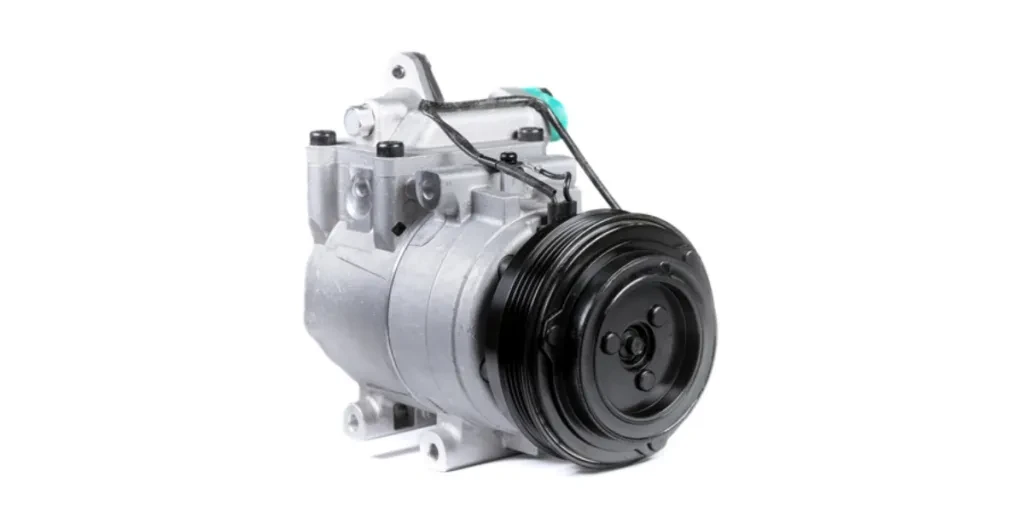
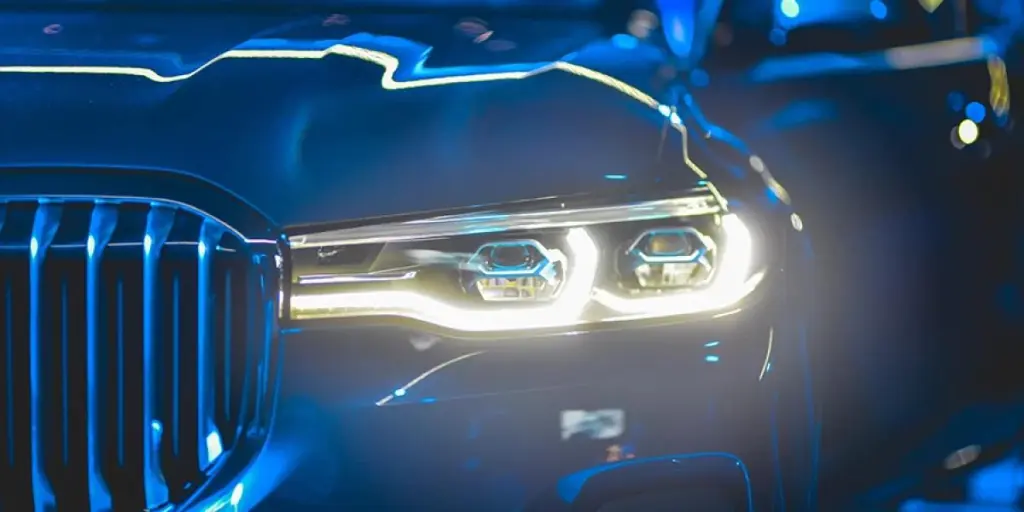
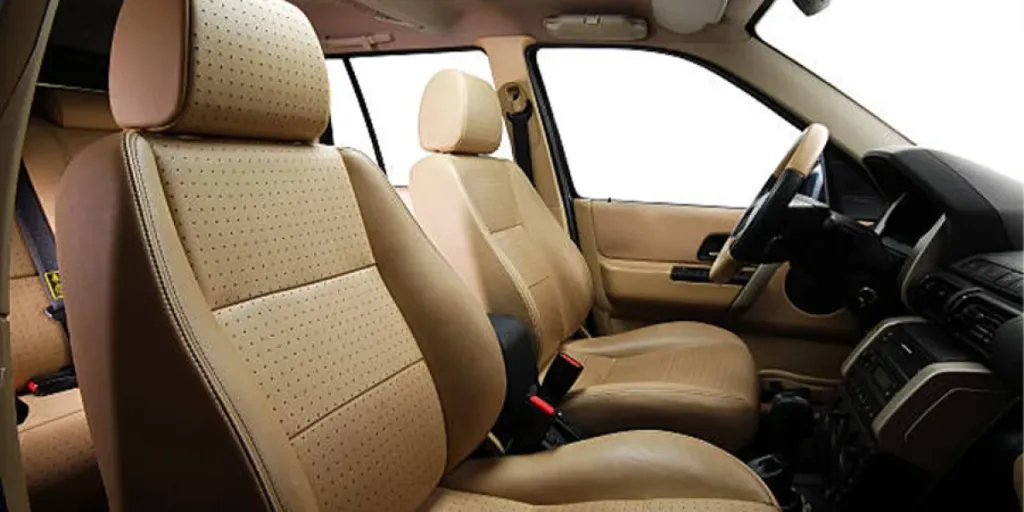


 বাংলা
বাংলা Nederlands
Nederlands English
English Français
Français Deutsch
Deutsch हिन्दी
हिन्दी Bahasa Indonesia
Bahasa Indonesia Italiano
Italiano 日本語
日本語 한국어
한국어 Bahasa Melayu
Bahasa Melayu മലയാളം
മലയാളം پښتو
پښتو فارسی
فارسی Polski
Polski Português
Português Русский
Русский Español
Español Kiswahili
Kiswahili ไทย
ไทย Türkçe
Türkçe اردو
اردو Tiếng Việt
Tiếng Việt isiXhosa
isiXhosa Zulu
Zulu